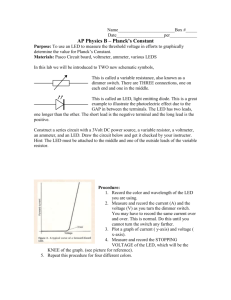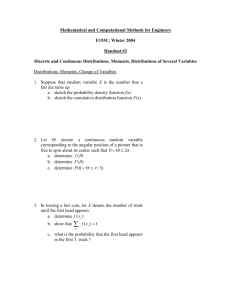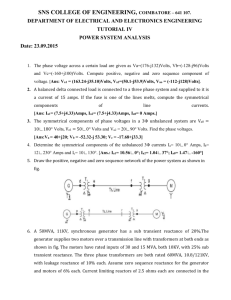Popular Batteries
advertisement
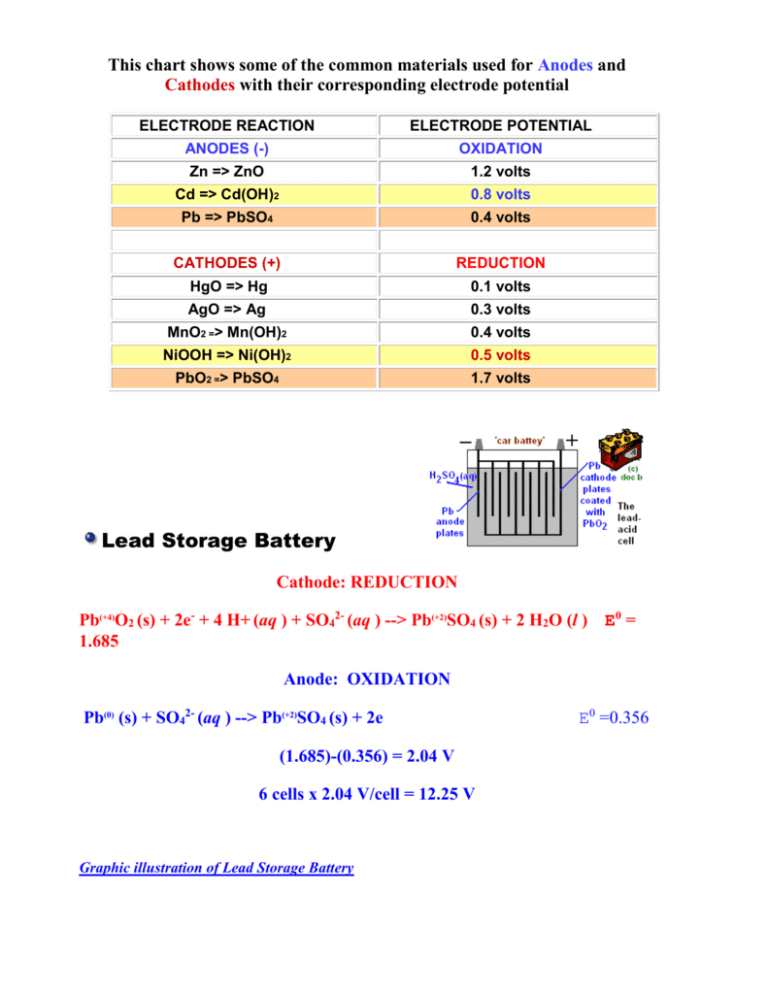
This chart shows some of the common materials used for Anodes and Cathodes with their corresponding electrode potential ELECTRODE REACTION ELECTRODE POTENTIAL ANODES (-) OXIDATION Zn => ZnO 1.2 volts Cd => Cd(OH)2 0.8 volts Pb => PbSO4 0.4 volts CATHODES (+) REDUCTION HgO => Hg 0.1 volts AgO => Ag 0.3 volts MnO2 => Mn(OH)2 0.4 volts NiOOH => Ni(OH)2 0.5 volts PbO2 => PbSO4 1.7 volts Lead Storage Battery Cathode: REDUCTION Pb(+4)O2 (s) + 2e- + 4 H+ (aq ) + SO42- (aq ) --> Pb(+2)SO4 (s) + 2 H2O (l ) E0 = 1.685 Anode: OXIDATION Pb(0) (s) + SO42- (aq ) --> Pb(+2)SO4 (s) + 2e (1.685)-(0.356) = 2.04 V 6 cells x 2.04 V/cell = 12.25 V Graphic illustration of Lead Storage Battery E0 =0.356 The chemical reactions in a Alkaline NiCd battery Cd(s)|Cd(OH)2(s)|KOH(aq)|Ni(OH)3(s)|Ni(OH)2(s)|Ni(s) Anode discharging reaction (i) Cd(s) + 2OH-(aq) ==> Cd(OH)2(s) + 2e- 0.81Volts Cathode discharging reaction (ii) 2NiOOH + 2H2O + 2e− → 2Ni(OH)2 + 2OH− 0.44 Volts NiOOH + NiOOH + 2e + H2O + H2O -> Ni(OH)2 + Ni(OH)2 + OH- + OHThe two reactions can be better visualized with the following picture: Nickel(III) Oxyhydroxide Overall cell reaction (iii) Cd(s) + 2NiOOH 3(s) ==> Cd(OH)2(s) + 2Ni(OH) 1.25 Volts Dry cell zinc-carbon battery, 1.5V falling to 0.8V as reaction products build up. A rod of carbon cathode (+) is set into a paste of zinc and ammonium chloride (weakly acid electrolyte) and fine particles of manganese(IV) oxide and carbon contained in a zinc anode (-) 'compartment'. Although called a 'dry' cell, the paste must contain water, which is thickened with e.g. starch. Zn(s)|ZnCl2(aq),NH4Cl(aq)|MnO(OH)(s)|MnO2(s)|Cgraphite anode discharging reaction Zn(0)=>Zn(+2) Zn(s) + 4NH3(aq) ==> [Zn(NH3)4]2+(aq) + 2ecathode discharging reaction Mn(+4)=>Mn(+3) MnO2(s) + NH4+(aq) + e- ==> MnO(OH)(s) + NH3(aq) overall working cell reaction Zn(s)+ 4NH3(aq)+ 2MnO2(s)+ 2NH4+(aq) ==>[Zn(NH3)4]2+(aq)+ 2MnO(OH)(s)+ 2NH3(aq) Standard Half Cell Potentials for batteries (Excellent Resource) EXCELLENT BATTERY REVIEW

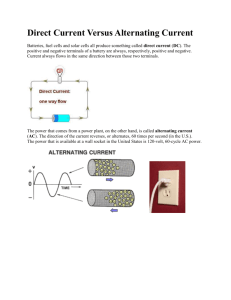
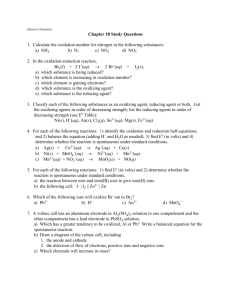


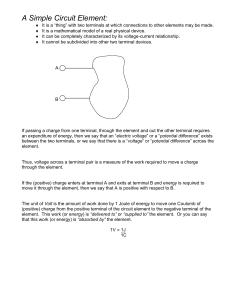
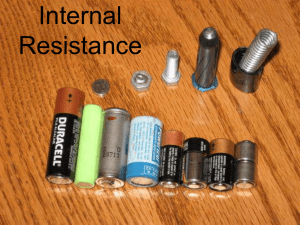
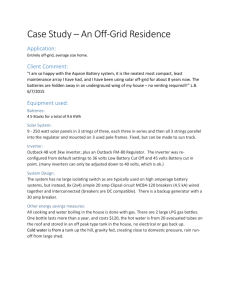
![milgram[1].](http://s2.studylib.net/store/data/005452941_1-ff2d7fd220b66c9ac44050e2aa493bc7-300x300.png)
